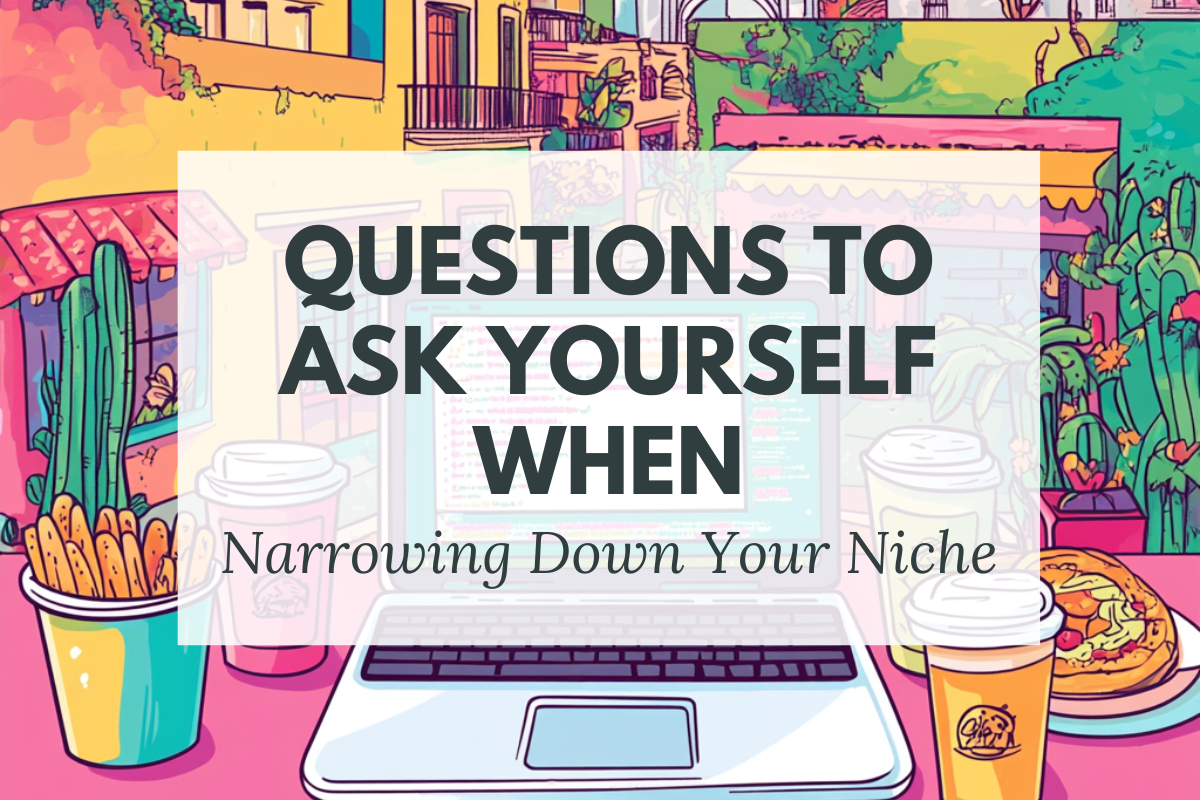Choosing the right niche is a pivotal step in building a successful business. It requires careful consideration to ensure that your chosen market aligns with your passions, skills, and goals. To help you make an informed decision, here are some essential questions to ask yourself when narrowing down your niche.
What Am I Passionate About?
Why it matters: Passion drives motivation and resilience.
- Reflect on Interests: What topics or activities excite you?
- Consider Long-Term Engagement: Can you see yourself committed to this niche for years?
- Assess Enjoyment: Would you still enjoy working in this area even during challenging times?
Choosing a niche you’re passionate about keeps you motivated and engaged.
What Skills and Expertise Do I Have?
Why it matters: Leveraging your strengths gives you a competitive edge.
- List Your Skills: What are you good at professionally and personally?
- Identify Unique Expertise: Do you have specialized knowledge others might lack?
- Consider Transferable Skills: How can your existing skills apply to this niche?
Your expertise can help you provide value and establish credibility.
Is There a Market Demand?
Why it matters: Without demand, there’s no business.
- Research Market Size: How many people are interested in this niche?
- Analyze Trends: Is the interest in this area growing or declining?
- Identify Pain Points: What problems do people in this niche need solved?
Validating demand ensures there’s an audience for your product or service.
Who Is My Ideal Customer?
Why it matters: Knowing your audience helps tailor your offerings.
- Define Demographics: Age, gender, location, income level.
- Understand Psychographics: Interests, values, lifestyle choices.
- Determine Needs and Wants: What are their biggest challenges and desires?
Understanding your customer allows for more effective marketing and product development.
How Competitive Is the Niche?
Why it matters: Competition affects your market entry strategy.
- Identify Competitors: Who else is serving this niche?
- Assess Their Strengths and Weaknesses: What can you do better or differently?
- Find a Gap: Is there a segment of the market that’s underserved?
Finding a less saturated niche or a unique angle can increase your chances of success.
What Is My Unique Value Proposition?
Why it matters: Differentiation attracts customers.
- Determine Your USP: What sets you apart from competitors?
- Align with Customer Needs: How does your uniqueness solve their problems?
- Communicate Clearly: Can you articulate your USP effectively?
A strong USP makes you stand out and appeals directly to your target audience.
Can I Monetize This Niche?
Why it matters: Profitability is essential for sustainability.
- Evaluate Willingness to Pay: Are customers ready to spend money in this niche?
- Consider Pricing Models: What pricing strategies will work best?
- Calculate Costs and Margins: Will your revenue exceed your expenses?
Ensuring profitability keeps your business viable in the long term.
What Are the Barriers to Entry?
Why it matters: Understanding challenges prepares you for success.
- Identify Legal Requirements: Are there licenses or regulations you need to comply with?
- Assess Technical Needs: Do you need specialized equipment or technology?
- Consider Time and Resources: Do you have what it takes to overcome these barriers?
Being aware of obstacles helps you plan accordingly and avoid surprises.
How Will I Reach My Audience?
Why it matters: Effective marketing is crucial.
- Choose Marketing Channels: Social media, email marketing, SEO, etc.
- Develop a Strategy: How will you attract and retain customers?
- Measure Effectiveness: How will you track your marketing success?
Having a clear plan to reach your audience increases your chances of engagement and sales.
Does This Align with My Long-Term Goals?
Why it matters: Alignment leads to fulfillment.
- Reflect on Personal Goals: Where do you see yourself in 5 or 10 years?
- Assess Lifestyle Fit: Will this niche support the lifestyle you desire?
- Consider Exit Strategies: Is there potential for growth or selling the business?
Choosing a niche that aligns with your goals leads to greater satisfaction and success.
Final Thoughts
Narrowing down your niche is more than just picking an area of interest; it’s about finding the perfect intersection between your passion, skills, and market demand. By asking yourself these questions, you can make a well-informed decision that sets the foundation for a thriving business.
Remember, the right niche doesn’t just make your business possible—it makes it meaningful.
So take the time to delve deep, answer honestly, and choose a niche that not only meets market needs but also fulfills you personally.
Pin This Post




